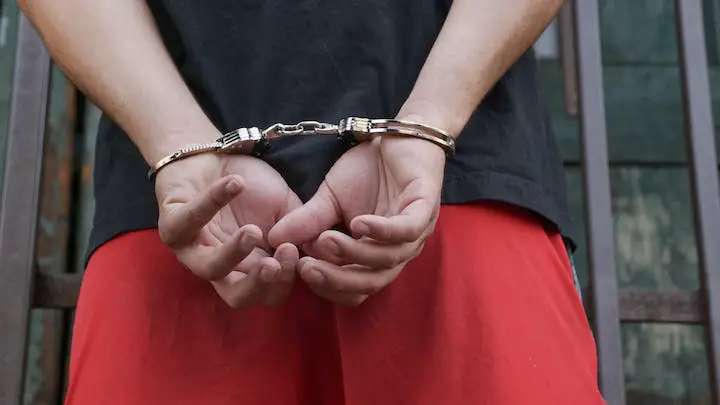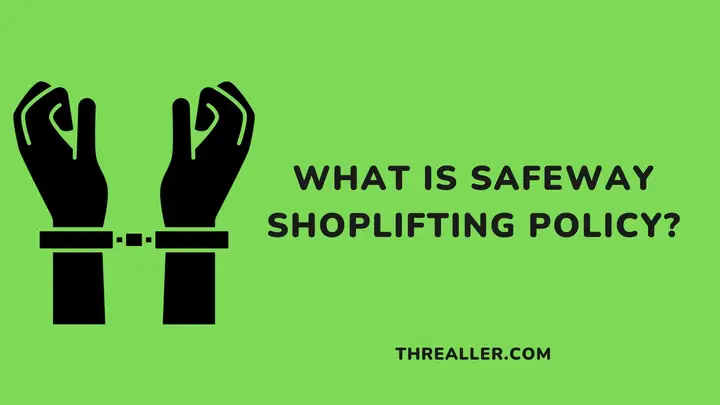Theft or shoplifting is a major issue big stores or malls like Safeway face daily. It negatively impacts revenue generation and the safety of a shopping space. Stores (including Safeway) have designed a shoplifting policy to deter potential offenders.
The Safeway shoplifting policy is a set of rules levied against shoplifting. While these rules may vary depending on location and the severity of your offense, the possibility of being pardoned (without any punishment) is very unlikely.
This guide explains the Safeway shoplifting policy and what to expect if you get caught. You will also discover the significance of the policy and emerging trends employed by Safeway to mitigate shoplifting further.
Safeway Shoplifting Policy: What to Expect if You Get Caught?
The consequences of shoplifting at Safeway depend on factors such as the value or cost of the item stolen, customer history, store location, and policy. Nevertheless, this policy is fair and consistent and treats everyone equally under the law.
Below are the different ways Safeway stores or policies handle shoplifting:
Civil penalties
Not every shoplifting case ends up in court. Some get reported to the store supervisor and are resolved with civil penalties such as paying a fine or financial restitution covering the stolen item’s cost.
Neglecting or not completing this payment within the specified period will land you in court. Other civil penalties include getting a trespassing notice. This notice prohibits you from visiting any Safeway store for a particular period or lifetime.
Violating it will also lead to further legal action, which may not end well for the culprit.
Legal action

Shoplifting is a crime, and Safeway stores treat it that way, especially if you steal an expensive item. If you are caught by an asset protection team or reported to the manager, law enforcement may be called to handle the situation.
In this case, the customer will likely be arrested and face legal action or prosecution on a date the court decides. Ensure you show up on the court date and see how the proceedings unfold.
Most times (especially if you are a first-time offender), you can plead for community service or restitution. However, failure to be present at the court will earn you a bench warrant, which will not improve your case.
Significance of the Safeway Shoplifting Policy
By now, you probably have a rough idea of why this policy was designed. Let’s go into more detail about how this policy mitigates shoplifting:
1. Prevention: This is the primary reason for the policy. Like most grocery stores, Safeway features surveillance cameras, visible signage, and security personnel.
2. Deterrence: Potential shoplifters are expected to be discouraged when they see asset protection squads, signage, and active surveillance cameras around them.
3. Protection of Assets: More discouragement means less theft, and less theft ensures the store’s and retailers’ profitability. It also ensures product availability for honest customers and a safe shopping environment.
Are Safeway Employees Authorized to Approach Shoplifters?
No, staff who are not managers or asset protection squads are not allowed to approach or apprehend shoplifters. Employees who violate this policy will face disciplinary action or get fired (worst-case scenario).
As a cashier or low-level employee, you must report any suspicion to management or a member of the asset protection team. It is their responsibility to investigate the issue and address it accordingly.
Safeway believes that its employee safety will always supersede the loss from a shoplift. Hence, you are not expected to jeopardize your safety or escalate a suspected shoplifting scenario.
The same rule applies to a customer who suspects another of shoplifting. The only difference is that customers cannot be fired if they approach such suspects and express their concerns. Nevertheless, it remains an unsafe practice.
Does Safeway Obey the “No Chase” Policy for Shoplifters?

Yes, the no chase policy also applies to shoplifting scenarios at Safeway. This policy trains employees to stop chasing a suspected shoplifter after they exit the store.
Once a customer’s foot is out of the door, they are assumed to have checked out of the store appropriately. Chasing them and accusing them of shoplifting may get you disciplined or fired, regardless of your position within the store.
You also risk exposing yourself and the company to legal action if your claim is wrong.
Preventing Shoplifting: Emerging Trends and Innovations from Safeway
Regular camera checks
While most stores now have surveillance cameras in line with the shoplifting policy, they rarely check or have someone monitoring these cameras. This is changing because Safeway has encouraged its outlets to check security footage frequently.
Exit gates
Safeway has also introduced exit gates at the self-checkout lines in some outlets around the Bay area (specifically). This gate scans the customer’s receipt before allowing them to exit.
While this is still a work in progress, it will launch in most Safeway stores if it effectively mitigates theft.
More asset protection team
Safeway stores still do not have enough asset protection teams or security personnel. This is also improving as the company keeps working on emphasizing the importance of asset protection units (especially for big outlets).
FAQs
What is the most common method of shoplifting?
Most shoplifters use the concealment strategy more than others. It involves identifying the item you wish to steal and hiding it in your pocket, a shopping bag, or a backpack.
What is the most stolen item in retail stores?
Alcohol is the most shoplifted item in retail stores. Shoplifters target them because they can be concealed easily or sold for money (due to their expensive nature).
Which age group shoplifts the most?
The frequency of this offense is elevated in boys and girls between the ages of 10 and 20.
The Bottom Line
The Safeway shoplifting policy remains a proper commitment to maintaining a secure shopping environment for customers, employees, and assets.
While the policy may vary by location, the message is clear. Safeway does not tolerate theft and will punish you accordingly if you are guilty. Most culprits face legal actions and appear in court or civic penalties such as fines or a trespass notice.
Lastly, Safeway will keep improving its policy and employ the latest technology to ensure an excellent shopping experience for customers.
I hope you found this guide helpful. For further reading, see how to get a new Safeway card if you cannot find the previous one.
Thanks for reading.
